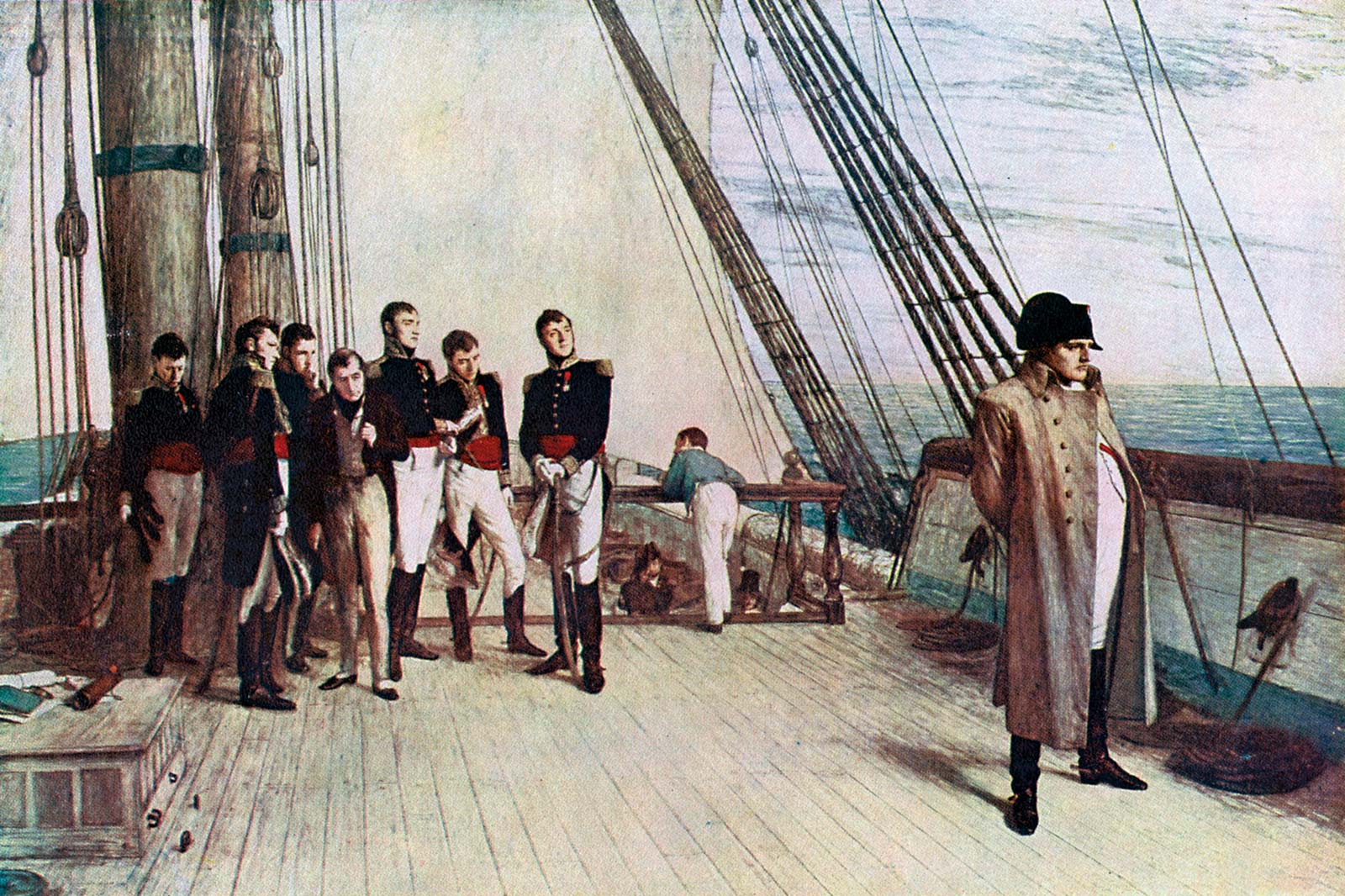Following the Hundred Days (from March to July 1815) - the short period in which Napoleon regained power after his second abdication - the decisive defeat of Waterloo (June 22nd, 1815) is paid a heavy price by victors. The casualties were enough to prove that Napoleon represented a threat to future European peace unless he was sent to a reclusive land far from everything. For the Emperor, even vanquished, seemed to have the same determination as the phoenix to reborn from ashes.
Exile Required by the European Powers.
While the defeat of Waterloo sign the imminent end of the Hundred Days, Napoleon surrendered voluntarily to the English who has the responsibility to choose his place of exile. While the fallen Emperor hopes to be sent to the United States, Great Britain is responsible for keeping him in good guard before the place where he will be sent is determined. For the allies and signatories of the Treaty of Paris (which acts the first abdication of Bonaparte on February 10th, 1763) are united in their intransigence in sending Napoleon where he will be totally and certainly unable to return to Europe to sow – according to their fear – disorder and chaos. At the same time, the allies formed by the European rulers do not savour the fervent support received by Napoleon during this last period.
Its perfume inherited from the French Revolution does not, indeed, have the leisure to please them which is confirmed by Bonaparte’s support everywhere in Europe. This support sees in this general having started with nothing one of the most important characters of his time, a precursor for a “modern administration and justice, for the meritocracy and the revolutionary principle of equality before the law. (Alan Forrest, in Napoleon at St. Helena, The Conquest of Memory, Gallimard / Army Museum). In this context, the choice of St. Helena does not appear as obvious as a relief. Behind an altruism of facade that justified this choice by a healthy climate and a distance that would to treat fallen Emperor with a particular indulgence, hides a real desire to isolate the general on a land surrounded by much more waves than his native corsican island.
Do you like this article?
Like Bonaparte, you do not want to be disturbed for no reason. Our newsletter will be discreet, while allowing you to discover stories and anecdotes sometimes little known to the general public.
Congratulations!
You are now registered to our Newsletter.
The landing of the Emperor at St. Helena.
On the morning of July 15th, 1815, Napoleon embarked on the Bellerophon flying the British flag bound for Plymouth in the south of England, from which he left on Northumberland on August 7th for St. Helena. His journey lasts several months and he finally arrives on the island on October 17th. The Longwood estate which has been attributed to him is not yet ready and he must, pending the end of adjustments, remain in the property of William Balcombe (1777 – 1829), agent of the East India Company with whom he quickly becomes friends. On December 10th, 1815, the deposed Emperor can finally move into his last home in Longwood, a house without comfort that the small circle of his faithful will strive to soften until the last breath of the general.
In order to please him, domestic service is quickly put in place. The interior and exterior service is provided by Louis-Joseph Marchand (1791 – 1876), Napoleon’s first dedicated and faithful manservant since the age of 20. He is assisted in his task by the Mamluk Ali (1788 – 1856) with whom he befriended. Butler Cipriani and chef Michel Lepage provide the food service while four manservant maintain fires, light candles, set tables and meet the demands of the Emperor and his officers.
Although his entourage is devoted body and soul to his well-being (even to recreate his cologne!), Napoleon can not ignore the control of his mail, his strictly supervised walks or the supervisory of his House spending. Bonaparte died on this isolated island in May 1821 at the same time that his legend was born on the continent that had exiled him.
Marielle Brie de Lagerac
Marielle Brie est historienne de l’art pour le marché de l’art et de l’antiquité et auteur du blog « Objets d’Art & d'Histoire ».
